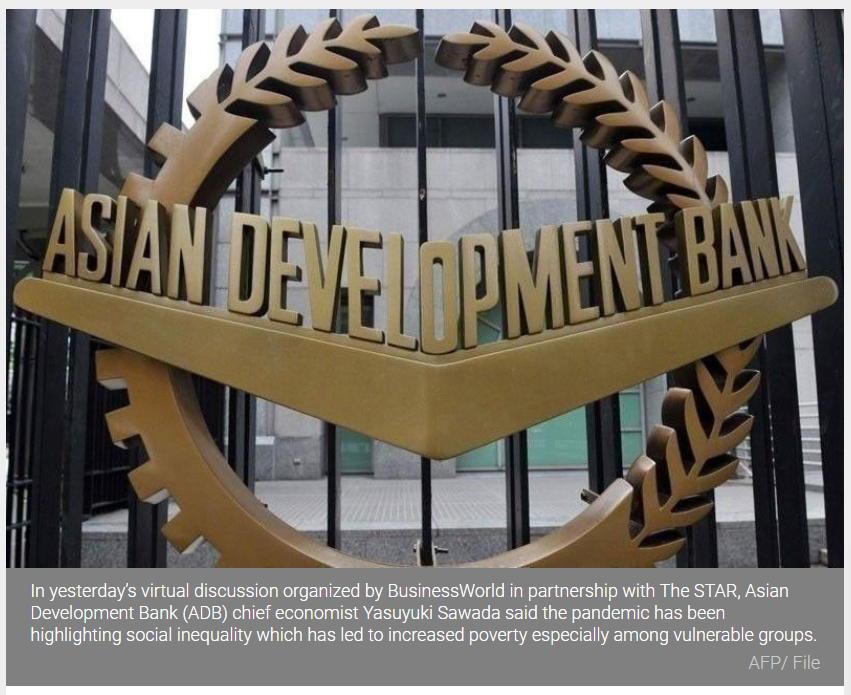Philippines: Pandemic pushes back gains in poverty reduction — ADB
MANILA, Philippines — Developing economies in Asia-Pacific, including the Philippines, need to strive harder to address inequality as decades worth of gains in reducing poverty have been pushed back due to the pandemic.
In yesterday’s virtual discussion organized by BusinessWorld in partnership with The STAR, Asian Development Bank (ADB) chief economist Yasuyuki Sawada said the pandemic has been highlighting social inequality which has led to increased poverty especially among vulnerable groups.
Sawada said the widening income gap has been a constant problem in the region but over the last decades, slow but steady progress has been made.
“In the last two to three decades, Asia-Pacific, including the Philippines, continues to see a decline in number and proportion of poverty,” Sawada said.
“The region has been progressing to decrease poverty dramatically but gains in poverty reduction have been pushed back since last year and this year,” he said.
ADB estimates that an additional 78 million people in the region will fall below the extreme poverty line or those living at $1.9 per day.
Some 182 million will also be added to the moderate poverty line or those living at $3.2 per day.
“There’s a substantial number of people falling below the poverty line because of the pandemic. Poverty increased a lot and a target approach is needed,” Sawada said.
For the Philippines, or for any developing economy, reducing the number of poor people is crucial to be able to upgrade to a better economic status.
ADB country director Kelly Bird said poverty in the Philippines worsened because of the pandemic and would likely remain elevated this year.
Bird estimates that poverty incidence in the country may jump to 20 percent this year from 16.7 percent and will only start to decline once the economy reopens.
“As long as the economy continues to grow this year and next year, we should expect to see those numbers start to decline,” Bird said.
The government has kept its target to bring down poverty level to 14 percent by the end of 2022.
Sawada said governments should create more sustainable and decent jobs for those affected as he called for a more green and inclusive recovery post-COVID.
ADB’s Asian Development Outlook 2021 emphasized that green and social finance must be nurtured to ensure that Asia and the Pacific’s recovery from the pandemic is inclusive, resilient and sustainable.
“COVID-19 has disproportionately hurt the poor, but it also presents an opportunity to build back better. This requires vast investment in the environment and in social sectors such as health and education,” Sawada said.
“Governments should strengthen the market infrastructure and ecosystem for green and social finance so that it can flourish and contribute to a sustainable and inclusive recovery,” he said.
ADB maintained that green and social finance benefits investors, firms and society.
It said that several financing tools that can promote a green and inclusive recovery include stimulus packages, microfinance and carbon pricing.
Source: https://www.philstar.com/business/2021/04/30/2094701/pandemic-pushes-back-gains-poverty-reduction-adb


 Thailand
Thailand




